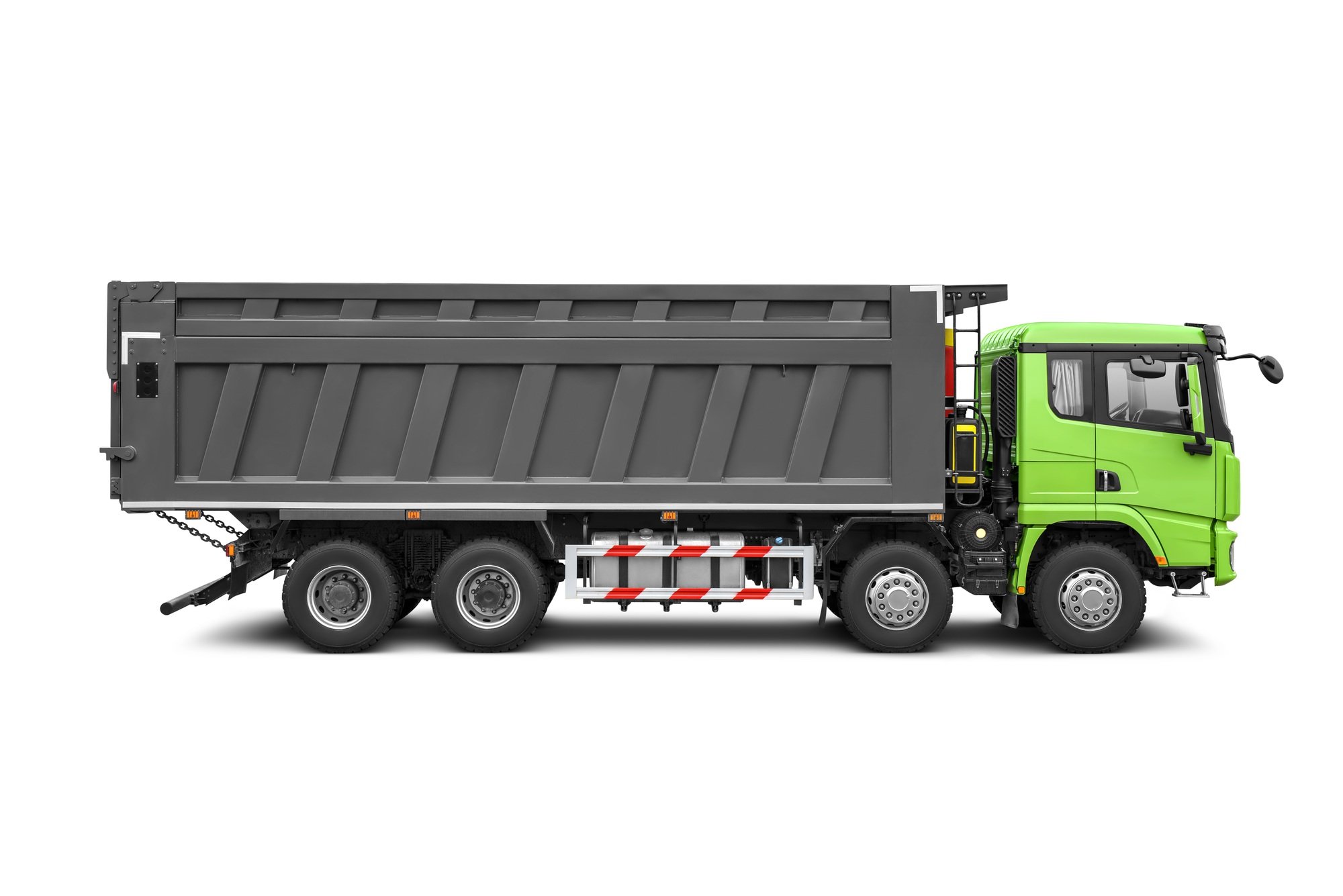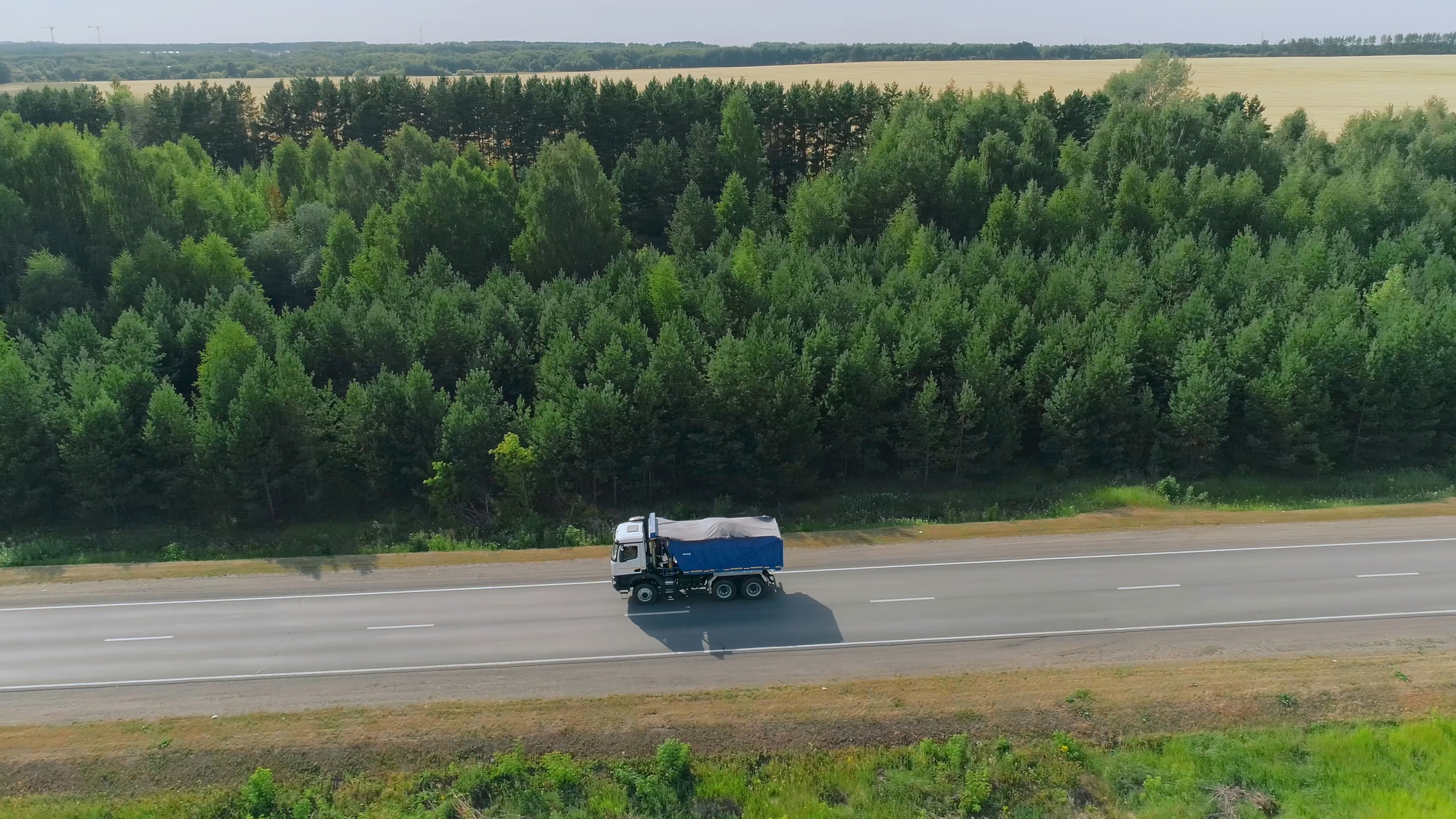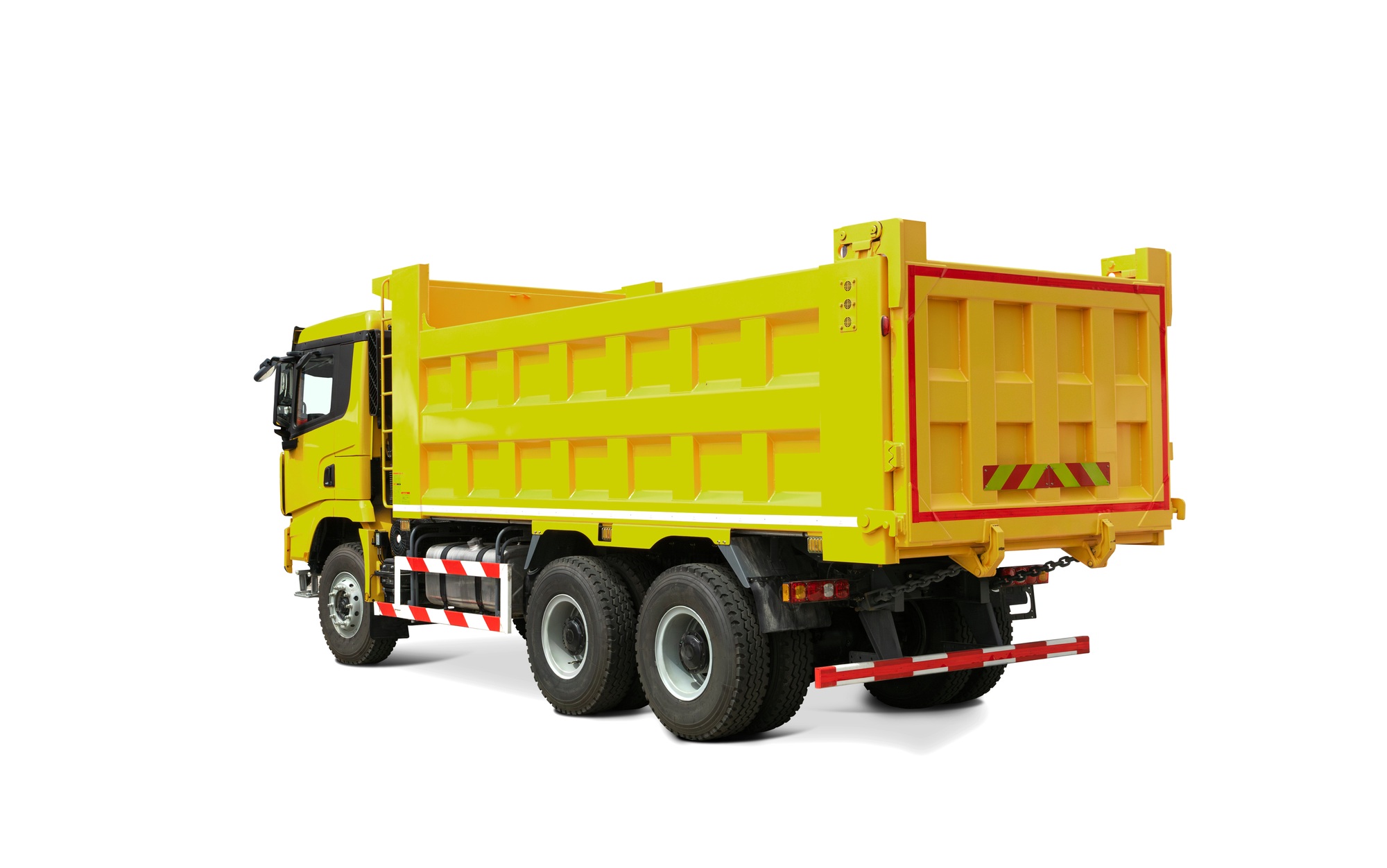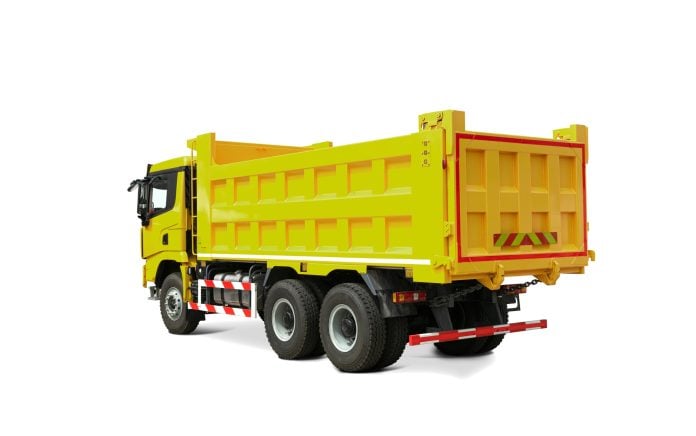Key Takeaways

- Lucrative Business Potential: The demand for dump truck services is on the rise due to growth in the construction and landscaping industries, presenting a profitable opportunity for aspiring entrepreneurs.
- Essential Business Plan: Developing a comprehensive business plan is crucial as it outlines your goals, attracts investors, and serves as a roadmap for daily operations and long-term strategies.
- Key Components: A successful dump truck business plan should include an executive summary, market analysis, detailed service offerings, marketing strategy, operations plan, and financial projections.
- Target Market Understanding: Identifying and understanding your target market—such as construction companies and landscaping businesses—allows you to tailor services effectively and increase client satisfaction.
- Financial Planning Importance: Proper financial planning, including startup costs and revenue projections, is vital to ensure profitability and sustainability in the competitive dump truck industry.
- Operational Efficiency: Establish a solid operational plan focused on equipment requirements and staffing needs to facilitate smooth day-to-day operations and enhance service delivery.
Starting a dump truck business can be a lucrative venture if you approach it with the right plan. With the construction and landscaping industries booming, the demand for reliable hauling services is greater than ever. You have a unique opportunity to tap into this market and build a successful business that meets the needs of your community.
Creating a solid dump truck business plan is essential for navigating the challenges ahead. This plan will not only help you outline your goals and strategies but also attract potential investors and secure financing. Whether you’re a seasoned entrepreneur or a first-time business owner, understanding the key components of a well-structured plan will set you on the path to success. Let’s dive into what you need to know to get started.
Overview Of Dump Truck Business

Starting a dump truck business presents significant opportunities within the booming construction and landscaping sectors. A well-structured business plan lays the foundation for your success, outlining strategies and goals while attracting potential investors.
Importance Of A Business Plan
A business plan serves as a roadmap for your dump truck business. It defines your objectives, including target markets and service offerings. An effective plan clarifies how you’ll manage operations and financial projections, helping you secure funding and guiding daily decision-making. You establish credibility with partners and lenders by demonstrating a clear vision.
Key Components Of A Dump Truck Business Plan
- Executive Summary: Summarize your business concept and highlight key success factors.
- Market Analysis: Research industry trends, target customers, and competitive landscape.
- Service Offerings: Detail the specific hauling services you’ll provide, such as construction debris removal or landscaping materials transportation.
- Marketing Strategy: Explain your approach to reaching potential clients and establishing a brand presence.
- Operations Plan: Outline daily operations, including staffing, equipment maintenance, and logistics.
- Financial Projections: Provide revenue forecasts, budgeting, and funding needs to ensure financial viability.
- Appendix: Include supporting documents like permits, licenses, and additional information about your team and equipment.
By focusing on these key components, you strengthen your plan, positioning your dump truck business for success in a competitive market.
Market Analysis

This section delves into key insights about the dump truck market, providing the necessary context for your business plan. Understanding industry trends and identifying your target market enhances your opportunity for success.
Industry Trends
The global dump truck market experienced notable growth, increasing from $49.39 billion in 2022 to $54.5 billion in 2023, with a compound annual growth rate (CAGR) of 10.3%. By 2030, the market anticipates reaching $16,104.25 million, reflecting a CAGR of 8.6% from 2023 to 2030.
The construction industry’s expansion and swift industrialization significantly drive this market growth. Valued for their power, user-friendliness, and ease of maintenance, dump trucks play an essential role in various sectors. Digitalization of vehicles enhances productivity, profitability, and operational efficiency. Additionally, increased government funding for technological improvements further contributes to market momentum.
With rising infrastructural developments globally, a strong demand for dump trucks exists, particularly in construction, mining, and infrastructure sectors. You can leverage these trends by aligning your business plan with current market demands.
Target Market Identification
Your target market for a dump truck business typically encompasses construction companies, landscaping services, mining operations, and infrastructure development agencies. Tailoring your services to meet the specific needs of these segments boosts your appeal.
Public and private sector projects require reliable hauling and transportation solutions, making them ideal clients. Construction firms often require dump trucks for moving materials like sand, gravel, and asphalt. Landscaping companies benefit from dump trucks to transport soil, mulch, and debris. Additionally, the mining sector relies on dump trucks for transporting minerals and other resources.
Identifying and understanding your target market is crucial for a small business in this competitive landscape. You can refine your business plan to focus on these sectors, ensuring that your services align with their operational needs and preferences.
Financial Planning

Effective financial planning is vital for a successful dump truck business. It outlines your understanding of expenses and potential revenue, serving as a foundation for your business plan.
Startup Costs
Starting a dump truck business involves several significant expenses. Here’s a breakdown of the key startup costs:
- Purchase of Dump Truck: Expect to spend between $30,000 and $150,000 for a new or used truck, depending on the model and condition.
- Licensing and Permits: These typically cost between $1,000 and $5,000, varying by location and the type of work you pursue.
- Insurance Costs: Annually, insurance can range from $4,000 to $7,000, based on the types of coverage you select and your driving history.
- Equipment and Tools: Budget around $2,000 to $10,000 for essential tools and equipment needed to operate effectively.
- Initial Marketing and Branding: An initial budget of $2,000 to $5,000 helps cover website development, social media campaigns, and promotional materials to attract customers.
Revenue Projections
Revenue projections should be a key part of your business plan. The dump truck industry is witnessing growth, fueled by increases in construction and landscaping projects. You might expect revenue potential to range between $50,000 and $150,000 per year, depending on your workload, rates, and client contracts. As the demand for hauling services continues to rise, precise projections can help ensure profitability and sustainability as you scale your small business.
Operational Plan

The operational plan for your dump truck business outlines essential day-to-day processes and long-term goals. This section focuses on your equipment requirements and staffing needs to ensure smooth and effective operations.
Equipment Requirements
For a successful dump truck business, select high-quality trucks that meet industry standards. Invest in at least one reliable dump truck to handle initial projects effectively. Many businesses find that a medium-duty truck is adequate for most hauling tasks. Additionally, consider essential equipment such as GPS systems for route optimization and safety features to protect your operators and cargo. Regular maintenance of the vehicles ensures longevity and reliability, contributing to your business’s efficiency.
| Item | Description |
|---|---|
| Dump Truck | One reliable truck for initial projects |
| GPS System | Optimize routes and reduce fuel costs |
| Safety Equipment | Ensure compliance with safety regulations |
Staffing Needs
Building a capable team is vital to running your dump truck business effectively. Hire at least one qualified driver with a commercial driver’s license (CDL) to operate the dump truck. Ensure they have experience in hauling materials. In addition to drivers, consider employing a dispatcher to manage schedules and coordinate jobs. Depending on your business size, an administrative assistant may help with invoicing and customer service. Establish a clear communication channel between your team members to enhance productivity and maintain a good relationship with clients.
| Role | Responsibilities |
|---|---|
| Driver | Operate dump truck and ensure safety |
| Dispatcher | Schedule jobs and allocate resources |
| Administrative Assistant | Handle invoicing and customer inquiries |
Marketing Strategy

A comprehensive marketing strategy is vital for the success of your dump truck business. Engaging effectively with your target market plays a significant role in attracting clients and growing your operations.
Advertising Channels
Utilize diverse advertising channels to reach your target customers effectively. Digital marketing strategies, such as social media promotions, website optimization, and search engine marketing, offer robust exposure. Use load boards and dispatching software to connect directly with clients seeking dumping services. Consider local advertising, such as flyers, signage, and partnerships with nearby construction companies and landscaping businesses. Engage in networking events within your community, showcasing your services and building relationships.
Building A Brand
Building a strong brand enhances recognition in the competitive dump truck market. Define your business’s unique value proposition and reflect it in your branding efforts. Consistency in logos, colors, and messaging across all channels strengthens brand identity. Provide exceptional customer service and maintain open lines of communication. Collect testimonials from satisfied customers to bolster credibility. Make community involvement a priority; participating in local events or supporting local causes elevates your brand’s profile and fosters trust.
Conclusion

Starting a dump truck business can be a rewarding venture if you approach it with a solid plan. By understanding the market and tailoring your services to meet specific needs you’ll position yourself for success. Your business plan will not only serve as a roadmap but also attract potential investors and guide your operations.
With the right financial planning and marketing strategies in place you’ll be able to tap into the growing demand in construction and landscaping. Investing in quality equipment and hiring skilled staff will further enhance your operational efficiency. Embrace the opportunities this industry offers and take confident steps toward building a successful dump truck business.
Frequently Asked Questions

1. What is the profitability potential of a dump truck business?
A dump truck business can be quite profitable, with potential annual revenues ranging from $50,000 to $150,000. This variation depends on workload, client contracts, and market demand, especially in construction and landscaping sectors.
2. What should be included in a dump truck business plan?
An effective dump truck business plan should feature an executive summary, market analysis, detailed service offerings, marketing strategy, operations plan, and financial projections. An appendix with supporting documents is also advisable.
3. How is the dump truck market currently performing?
The dump truck market is experiencing significant growth, increasing from $49.39 billion in 2022 to $54.5 billion in 2023, with a projected CAGR of 10.3%. This growth is fueled by the expansion of the construction industry and government funding.
4. What are the key startup costs for a dump truck business?
Key startup costs include purchasing a dump truck, obtaining licenses and permits, insurance, equipment and tools, and initial marketing expenses. These costs can vary widely based on factors like truck model and location.
5. What kind of marketing strategies work for dump truck businesses?
Effective marketing strategies for dump truck businesses include digital marketing, local advertising, networking events, and engaging with load boards. Building a strong brand and providing excellent customer service are also essential for success.
6. What staffing is needed for a dump truck business?
Staffing needs for a dump truck business typically include qualified drivers with commercial driver’s licenses (CDLs), dispatchers for managing schedules, and administrative assistants for invoicing and customer service to optimize operations.
7. Why is market analysis important for a dump truck business?
Market analysis helps identify target clients, understand demand, and assess competition. This information is crucial for developing services tailored to specific client needs and enhancing the overall business strategy.
Image Via Envato: duallogic, stockcentral, westend61, gargantiopa, incomecenterr, Danil_Rudenko, Ha4ipuri, EdVal



